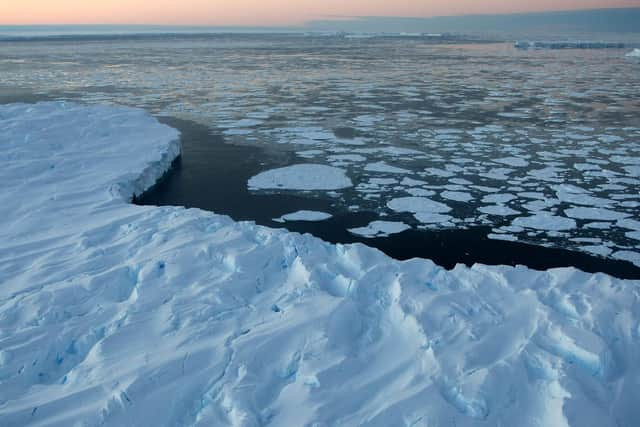Climate change: Astonishing temperatures in Arctic and Antarctica sound yet another climate warning – Dr Richard Dixon
As I write, southwestern Europe is being hit by heavy rain, thunderstorms and flooding, with red alerts in parts of Spain.
In parts of Eastern Antarctica, it is 40C warmer than normal. If spring temperatures were 40C warmer than normal in Scotland just now they would be in the high 50s or around 135 Fahrenheit in old money. Unthinkably extreme.
Advertisement
Hide AdAdvertisement
Hide AdIn fact, literally unthinkable because the scientists who study the climate of the coldest part of the world did not think this was possible.
It’s still chilly. Average March temperature peaks at Vostok in eastern Antarctica at around minus 53C but last week it was sitting at above minus 20C, a whopping 5C warmer than the previous record.
At the top of the planet, parts of the Arctic were 30C warmer than normal last week.
Of course this is just the weather, but when the weather breaks records and exceeds averages by large margins, this is painting a picture of climate change. Climate change means parts of the Arctic are warming three times faster than the global average.
I recently wrote about the latest predictions from the Intergovernmental Panel on Climate Change on what the impacts of climate change are likely to be. From the end of coral reefs to the 150 million climate refugees who will be on the move by 2050, things are getting worse faster than expected.


Even in the few weeks since that report came out, there has been another alarming study released which finds the Amazon rainforest is heading towards a tipping point where it will not be able to regenerate after fires and droughts.
I remember wandering the corridors of an early 2000s UN climate conference late at night and coming across a stand displaying a crude animation of the Amazon rainforest through time. As the year counter advanced and the world warmed, more and more of the tree symbols disappeared to be replaced with the light green of grassland. It was very simple but also one of the most affecting demonstrations that I have seen of the danger we are all in.
Two decades on, satellite observations show that three-quarters of the forest is losing resilience. Large areas could become scrubby grass savannah instead of the massive forests that still cover an area more than half the size of Europe.
Advertisement
Hide AdAdvertisement
Hide AdOf course the massive trees, and the soils beneath them, contain huge amounts of carbon. The loss of large part of the rainforest would release huge amounts of carbon into the atmosphere. This would accelerate the temperature rise, killing off more trees, releasing more carbon, accelerating… well, you get the idea.
The Amazon rainforest, its people and its wildlife are also facing record levels of deforestation for timber, cattle ranching and large-scale farming.
The planet continues to give us the strongest possible warnings of the folly of continuing to burn fossil fuels and heat up our planet.
Dr Richard Dixon is director of Friends of the Earth Scotland
A message from the Editor:
Thank you for reading this article. We're more reliant on your support than ever as the shift in consumer habits brought about by coronavirus impacts our advertisers.
If you haven't already, please consider supporting our trusted, fact-checked journalism by taking out a digital subscription.
Comments
Want to join the conversation? Please or to comment on this article.
